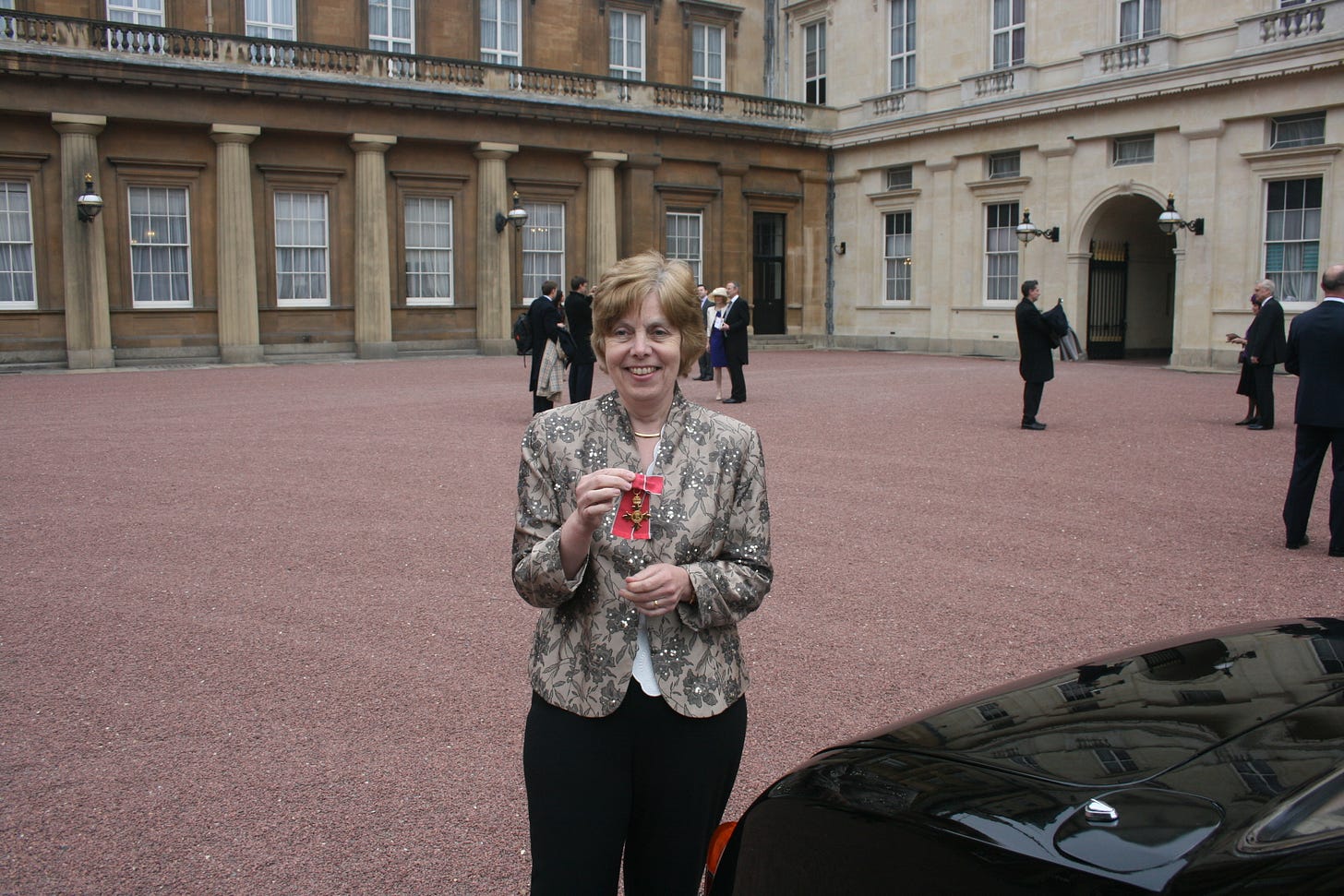Stoke's Unsung Heroes #5: Ruth Chambers
The retired GP won an OBE for setting up a Quality Improvement Framework across Stoke’s general practices and wrote a book championing local people's achievements
Tell us a bit about you and how your career in Stoke began
My first job in Stoke-on-Trent was in 1976 as a junior doctor at the Royal Stoke University Hospital. I was a GP for 10 years in Stone then in Tunstall until I retired a few years ago. Since then I’ve successfully bid for national or local funds for healthcare programmes like using a smart device to find people with an irregular heart rate at community events, and deploying electronic stethoscopes so that doctors looking at a patient’s records in their general practice can interact live with patients in a nursing home, listening to their heart or lungs.
Your latest book Our NHS for Better or Worse? was published in October. Tell us about it – and the biggest changes you’ve seen to the NHS…
The book follows my 50-year career working for, and with, the NHS as a GP and academic with lots more stories and insights from other long-standing NHS staff.
This evolving digital expertise includes the use of robotic surgery in urology and gynaecology specialties for example; smart texting patients identified as being at risk to invite them for screening; and using virtual wards instead of hospital beds for patients whose care can be delivered remotely by their doctors and nurses..
The book concludes with ‘77 ways to Save and Sustain our NHS’. Could you summarise the main points you make here?
The NHS is suffering from underfunding, and is forever trying to recover from repetitive, disruptive reorganisations of the whole system and focused parts. We need to preserve and expand our NHS workforce, and create an inclusive culture for staff and patients. We should provide and sustain great leadership from the top levels to team leaders, equipping NHS managers to do a great job.
We must reserve sufficient national funding for the NHS to be freely available for all, and we have more chance of succeeding if we prioritise preventive care, empowering people to adopt healthy lifestyle habits and self-care. Despite the pressures on the NHS we must uphold consistently high quality standards of delivery of healthcare and maintain safety standards.
You also wrote a book Stoke Your Success, interviewing local achievers that was intended to inspire others. To what extent do you think the book challenged negative stereotypes about Stoke and Staffs?
The book celebrates Stoke as a centre in which many achievers have grown up or been sited across many different fields of life and business. Yet Stoke-on-Trent isn’t recognised as a terrific place to live or grow up. The area and its population tends to be unfairly regarded as a deprived area with few opportunities for people to thrive. But it’s actually a diverse inner-city area with lots of achievers in many fields, including business, healthcare, sports, arts and public services.
This book also captures key elements of the achievers’ successes and should stimulate readers to think what actions are worth them taking to optimise the likelihood of them succeeding, and building self-belief with a ‘can do’ approach. That’s how nearly all those I interviewed did it – they believed in themselves and put huge personal effort into making successful outcomes happen.
You received an OBE following your establishment of a Quality Improvement Framework across Stoke’s general practices, including improved clinical practice and patients’ health outcomes. How do you feel about it now?
I’m still very proud of my OBE. Many doctors get theirs when they step down from a top role with a national organisation, whereas I received mine for a personally led and conceived quality improvement programme that will have saved many thousands of lives of people currently living in Stoke-on-Trent.
What are the challenges the NHS is facing in Stoke and Staffs specifically?
The scale of health inequalities across Staffordshire is eye watering. Life expectancy in some areas like Cannock and Stoke-on-Trent is 10 years less than in more affluent areas across the county. This is mainly explained by the poor lifestyle habits of those living in our deprived areas where there are so many more people with diabetes, heart disease and cancer, which triggers decades of ill heath needing constant NHS care. Other more affluent areas in the UK have patients who are more likely to self-care and adopt healthy lifestyle habits.
Your interests include encouraging people to self-care. Can you expand on what that means and how The Knot readers can try this?
There are various approaches to self care, from the achievement and maintenance of good health and a healthy lifestyle to the prevention of ill health and minimising symptoms from minor illness. When I worked on this with the Department of Health around 20 years ago we encouraged individual people to take PART: Prevent the health condition developing (eg healthy lifestyle); Await resolution of the symptoms; use self care skills for Relief of symptoms and Learn to Tolerate symptoms that do not resolve or cannot be reasonably alleviated.
Do you feel like the NHS is in safe hands and are you confident we will still have an NHS in another 50 years?
I think the current government is committed to supporting the NHS, but it needs clever thinking and determination for the NHS to be fairly available to all, with consistent, high quality accessible healthcare. It needs a much higher proportion of NHS funds invested in general practices and community and social care sectors – to invest in prevention and delivery of care out of hospital and empower people to self-care. Then, if politicians delegate the leadership and delivery of the NHS to intelligent managers and leaders with significant clinician input, and minimise fear factors like league tables, the quality of the NHS can soar, and its life expectancy increase at speed.
Do you want to nominate someone for The Knot’s ‘Stoke’s Unsung Heroes’ column? We’d love to hear from you! Email james@theknot.group with your suggestions








I really enjoyed reading this article as it was intelligent and inspiring. I agree with the author re ensuring that the managers in the NHS are striving for the best patient care, which can only be achieved by having a motivated and valued workforce. I have several friends who work in the NHS and too often management are not listening to staff and are too driven by external sources eg targets, which can be manipulated.